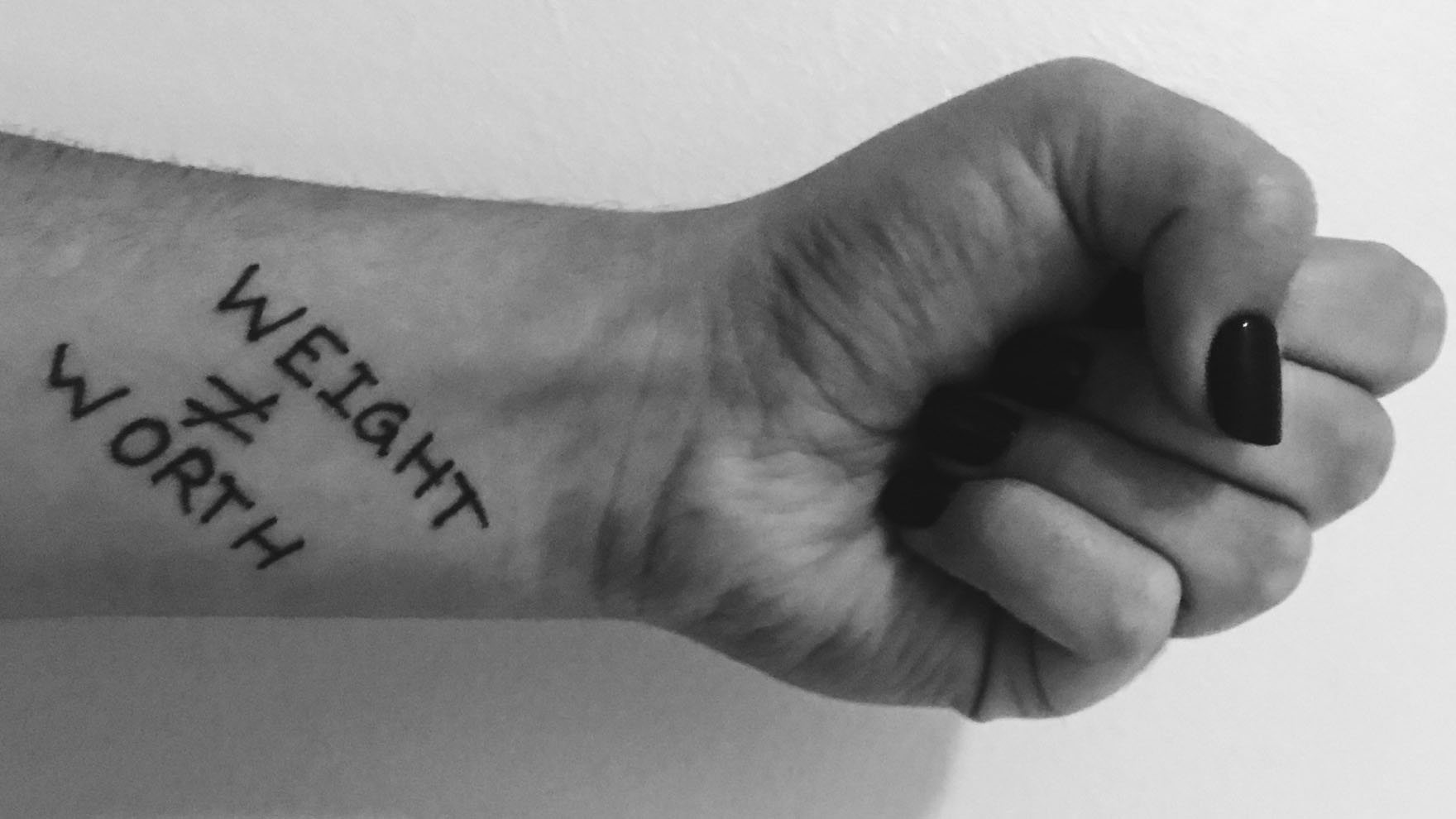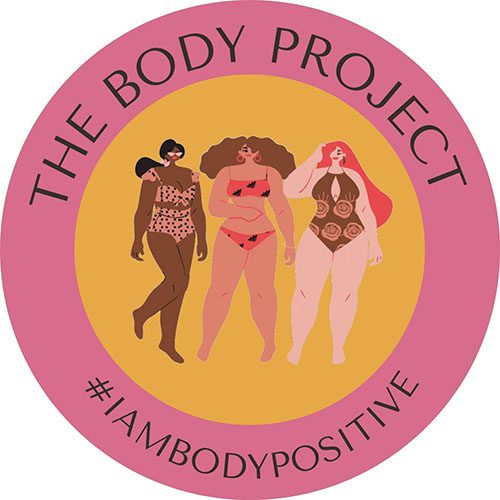The Body Project battles unrealistic beauty ideals

In 2014, Kerstin Blomquist, an associate professor of psychology, had some questions about body image to ask the first-year students that would make up the Class of 2018.
The answers didn’t surprise her, but they were “disheartening,” she said.
The survey, given to 245 Furman students as part of a multi-university longitudinal study, revealed that 90% of the respondents expressed some level of weight or shape concerns, with 11% reporting “clinically significant” concerns.
In addition, 23% of the male respondents and 51% of the female respondents reported some kind of disordered eating when they started college, such as binge eating, skipping meals, excessive meals or use of food supplements.

A sticker advertising The Body Project
Blomquist, who had spent years researching body image and disordered eating, knew of a program that might help: The Body Project, an evidence-based intervention created by university researchers to confront unrealistic appearance ideals and develop healthy body images.
“I thought, ‘Why not bring it to Furman?’” said Blomquist.
After intensive coaching by national instructors, Blomquist and a few others began training students as peer leaders. They launched The Body Project at Furman University in Fall 2018. Since then, 208 students have participated.
“We know that body dissatisfaction leads to a whole slew of negative outcomes in terms of well-being: depression, anxiety, low self-esteem, disordered eating, suicidality,” said Blomquist, the program’s clinical supervisor. “So, targeting body image is actually a particularly important prevention tool.”
Students who sign up are divided into groups of about 10. Each group meets with their peer leaders for two two-hour sessions, one week apart. The goal is to identify the appearance ideal – “what we’re told we should look like,” said Blomquist – proliferated by the media, the fashion industry and other social influences.
That ideal is not only a lie, it’s a dangerous and insidious one, said peer leader Mary Morrison ’23.
“I personally experienced many years hating my body because it wasn’t what society told me a woman should look like,” said Morrison, a psychology major. “We are given messages about an ‘ideal body’ type as early as childhood, and these messages continue throughout development and well into adulthood, for both women and men.”
“It’s about identifying the messages about appearance being sold to us,” Blomquist said, “and then it’s about identifying the costs to internalizing those messages.”
It’s not just financial cost, said Body Project administrative co-supervisor Gwen Hirko, health promotions coordinator in Furman’s Division of Student Life. In addition to negative mental health outcomes, body image issues can also distract students and drag down GPAs.
“You’re focusing on how you look and how other people are perceiving you while you’re sitting in class,” Hirko said, “when you should be focusing on what you’re supposed to be learning.”
There are social costs, too. “If you’re focused so much on pursuing the appearance ideal, it can negatively influence your relationships with friends, families and significant others,” she said.
Exercises such as role-playing, listing their own positive qualities and writing letters to their younger selves help the students get comfortable talking out difficult topics that are often ignored, said Body Project administrative co-supervisor Lillian Essaf, associate director of Residence Life.
“Before, they might shut down and say, ‘Oh, that’s an uncomfortable topic, I don’t want to talk about that,” Essaf said. “This gets them more comfortable talking about and pushing back on those ideals to try and stop perpetuating them.”
“When we talk about the hard things in a safe space, we connect,” agreed Morrison. “Every time I lead a session, I leave feeling more comfortable in my own skin.”
This year, Furman is also offering More than Muscles, a program for men. Although some of the particulars may be different, the goal for both programs is the same: pushing back against appearance ideals and promoting a positive body image.
“I wanted to be involved with this organization due to how beautifully impactful it was for myself and others around me,” said student leader Liza DeVine ’23. “To see people set free from the burdens society puts on them to look and act a certain way is incredibly liberating.”
To learn more, visit the FU Body Project Instagram or sign up at The Body Project at Furman University.